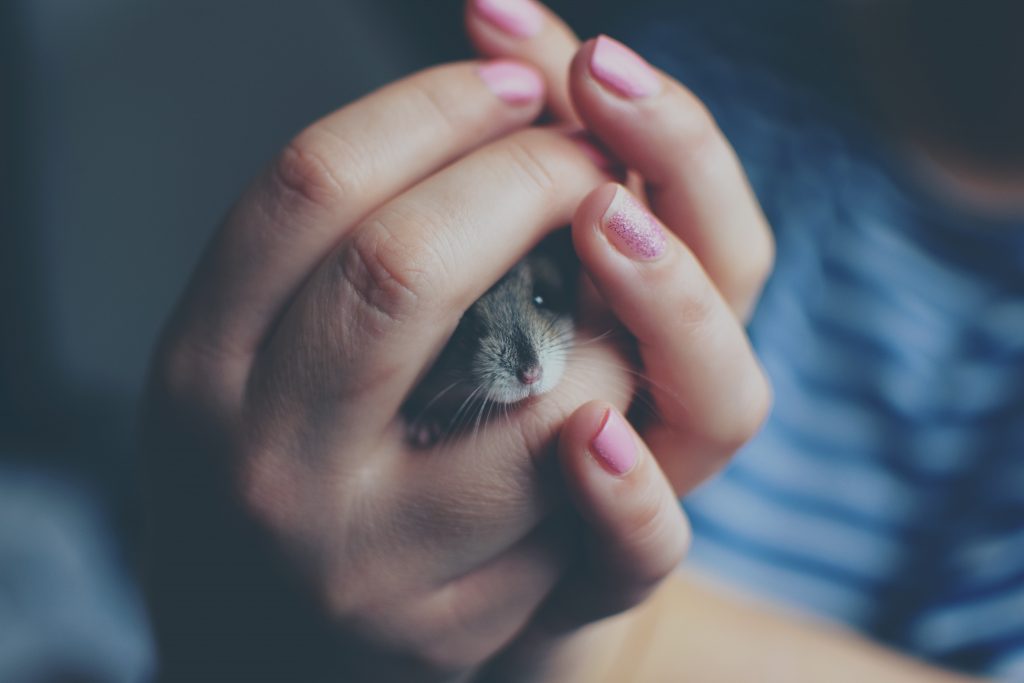
Whatever the times, suffering eventually touches every life. How we live with it, and help others to, is one of the great creative and ethical opportunities.
– Dr. Elaine N. Aron –
Several years ago, when my daughter was still in pre-K, our family’s morning routine had become a teary and stressed-filled extravaganza. Every morning, we’d send my daughter off to her room to get ready for school and within minutes she’d be sobbing as she struggled to find something to wear.
Initially, my interpretation of these episodes was the default conclusion that she was just resistant to going to school. I would respond by cajoling her into getting dressed and when that didn’t work, I’d turn up the heat and become the demanding parent that I hated to be.
I often found myself torn between wanting to give her space to take care of herself and feeling completely frustrated with her because of the havoc this slowdown created for our morning. We were chronically late because of the amount of time it took her to get ready and typically everyone was stressed before we even left the house, which is a horrible way for anyone to start their day.
However, I realized something much more deep-seated was at play when one morning I found her curled up in her closet absolutely unwilling to come out to get dressed. Honestly, I didn’t know how to support her. I was completely frustrated and at a loss as to how to address what I was seeing. I just knew something was wrong and we needed to do something different.
With a little bit of research, I discovered Dr. Elaine Aron’s work with Highly Sensitve Children (HSC), and quickly came to the realization that our daughter was likely dealing with some sensory sensitivity, the result of a highly active nervous system, which is a trait that expresses itself in roughly 15% to 20% of the population.
This awareness explained not only her sensitivity to clothes but also her pickiness with food, her propensity to stand back and observe in new situations, and her emotional intensity. From what I read, I also understood that our response as parents to her sensitivity would be key in helping her manage it.
As a result, my husband and I endeavored to work with her sensitivity in a way that honored her experience rather than trying to tamp it down. We took the time to get her clothing that felt right on her body. We paid more attention to her food preferences, while still encouraging exploration of new foods. We taught her mindfulness practices to help her learn to self-regulate. Perhaps most importantly, we let her know she was not alone in her struggle and her sensitivity provided her with some benefits that would serve her in life.
The upside for children who are HSC is that they are often very intelligent, creative and emotionally intuitive. They can express incredible compassion from an early age and are highly perceptive to the nuances of situations that many of us miss. And because it expresses itself in up to 20% of the population, this would suggest that being highly sensitive has some survival value for our species.
All of this learning and orienting towards our daughter’s experience came full circle about a year later. One morning when we were busy getting ready to leave the house, our daughter was putting the finishing touches on her morning prep for school—the ever-challenging putting on of socks and shoes. We were running late (as is often the case) and although my husband and I were not verbally rushing her, we were hovering with a sense of urgency that she wrap up the task.
My daughter, without batting an eye, just looked up at us and said, “I have a sensitivity to clothing and it takes me a bit longer to get ready.” It was so matter-of-fact—no shame, no wanting of things to be different—just a gentle reminder to us in that moment of what she was working with and perhaps, additionally, that it would be helpful if we worked with her.
I well-up recalling that moment, because I can remember how beaten down and debilitated she had felt just a year prior. To see her embrace who she is with such ease and acceptance just brings home to me how important our responses as parents are to the challenges our children face. How we meet our children, whether with acceptance and compassion or judgement and control, will impact how they feel about themselves and respond to the challenges they will inevitably face throughout life.
I likely would not have been able to give her that space had I not been cultivating mindfulness within my own life. Having a mindfulness practice gave me the presence I needed to slow down and become curious about what was happening for my daughter and why. It provided me with the patience, acceptance and compassion she needed as she learned to accept and work with her sensitivity. As a result, our whole family grew and learned from the experience.
This episode in my parenting journey was another reminder that being a kid can be just as challenging as being an adult—we fool ourselves when we think that it isn’t. Mindful parenting helps us to resist the urge to be reactive when our children aren’t behaving in the manner we’d like and to bring some curiosity and care to the situation at hand. Sometimes what we uncover in paying attention is that there are things we need to learn to support our children more effectively. Additionally, when we can approach whatever is happening for them with kindness and acceptance, we foster kindness and acceptance within themselves. It is a win for everyone!

 How Intentions Inform Your Goals
How Intentions Inform Your Goals